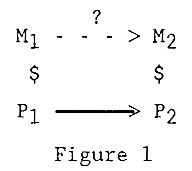Emergentism
Emergentism is a philosophical theory in the realm of metaphysics and philosophy of mind that emphasizes the emergence of complex structures and properties from simpler components. This theory suggests that higher-level properties or phenomena emerge from the interactions and relationships between lower-level entities, without being reducible to or predictable from the properties of these entities. Emergentism has implications across various disciplines, including biology, psychology, sociology, and physics, influencing how complex systems and phenomena are understood in these fields.
Overview[edit | edit source]
Emergentism posits that as complex systems organize, new properties or behaviors emerge that are not evident from the sum of the system's parts. This concept is often contrasted with reductionism, which holds that a system can be fully understood by breaking it down into its constituent parts and analyzing each in isolation. Emergentists argue that there are properties, often called "emergent properties," that cannot be fully explained by dissecting the system but can only be understood by looking at the whole system.
History[edit | edit source]
The concept of emergence has historical roots in the 19th and early 20th centuries, with philosophers like John Stuart Mill and C. D. Broad contributing to its early formulations. Mill introduced the idea that the actions of the elements of a system in combination might have different effects from the same elements acting in isolation. Broad further developed the concept, distinguishing between mechanical and emergent causation, and arguing for the existence of emergent properties that cannot be predicted from the properties of the system's parts.
Types of Emergence[edit | edit source]
Emergentism can be divided into two main types: weak emergence and strong emergence.
- Weak Emergence: This form of emergence is often associated with computational or systems theory. It suggests that emergent properties can, in principle, be predicted or explained by the interactions of the system's parts, given enough information and computational power. Weak emergence is widely accepted in scientific communities as it aligns with the principles of physicalism and does not invoke any non-physical explanations.
- Strong Emergence: Strong emergence posits that emergent properties are fundamentally irreducible to and unpredictable from the lower-level phenomena from which they emerge. This form of emergence suggests that new laws or principles come into play at higher levels of complexity, which cannot be deduced from the laws governing simpler phenomena. Strong emergence is more controversial, as it challenges the completeness of physicalism and raises questions about the nature of causation and explanation in science.
Implications in Various Disciplines[edit | edit source]
Emergentism has significant implications across multiple disciplines:
- In biology, the theory underpins the study of complex systems such as ecosystems, where emergent properties like biodiversity cannot be fully understood by examining individual organisms alone.
- In psychology and neuroscience, emergentism supports the view that consciousness and mental states are emergent properties of brain activity, offering a framework for understanding the mind-body problem.
- In sociology, emergentism helps explain how complex social behaviors and institutions arise from the interactions of individuals.
- In physics and chemistry, the theory is relevant in the study of phase transitions and the emergence of novel properties in complex materials.
Criticism[edit | edit source]
Critics of emergentism argue that the theory is often vague and lacks a clear mechanism for how higher-level properties emerge from lower-level interactions. Some reductionists contend that all emergent properties can, in principle, be explained by the laws governing simpler components, given sufficient knowledge and computational resources.
Conclusion[edit | edit source]
Emergentism offers a compelling framework for understanding the complexity of the natural world, emphasizing the limitations of reductionist approaches in fully explaining the emergence of novel properties and behaviors in complex systems. Despite its challenges and criticisms, emergentism continues to influence philosophical thought and scientific research across various disciplines.
Navigation: Wellness - Encyclopedia - Health topics - Disease Index - Drugs - World Directory - Gray's Anatomy - Keto diet - Recipes
Search WikiMD
Ad.Tired of being Overweight? Try W8MD's physician weight loss program.
Semaglutide (Ozempic / Wegovy and Tirzepatide (Mounjaro) available.
Advertise on WikiMD
WikiMD is not a substitute for professional medical advice. See full disclaimer.
Credits:Most images are courtesy of Wikimedia commons, and templates Wikipedia, licensed under CC BY SA or similar.
Contributors: Prab R. Tumpati, MD

